IR 144 Koishibayev Amirkhan Did you know?

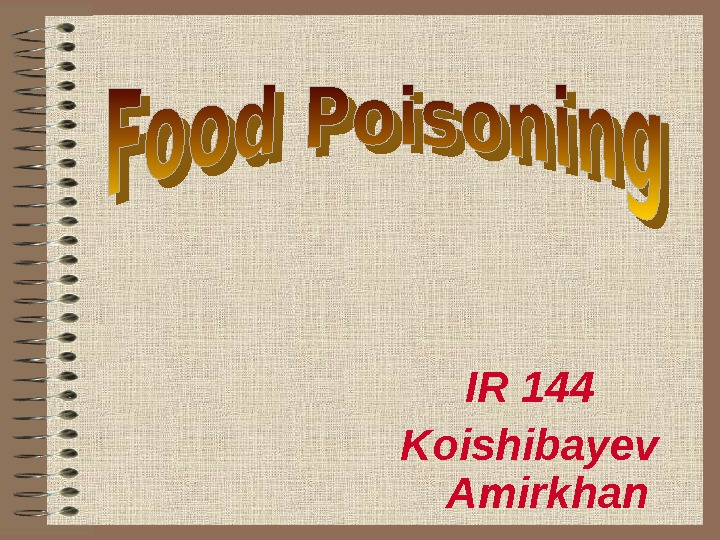
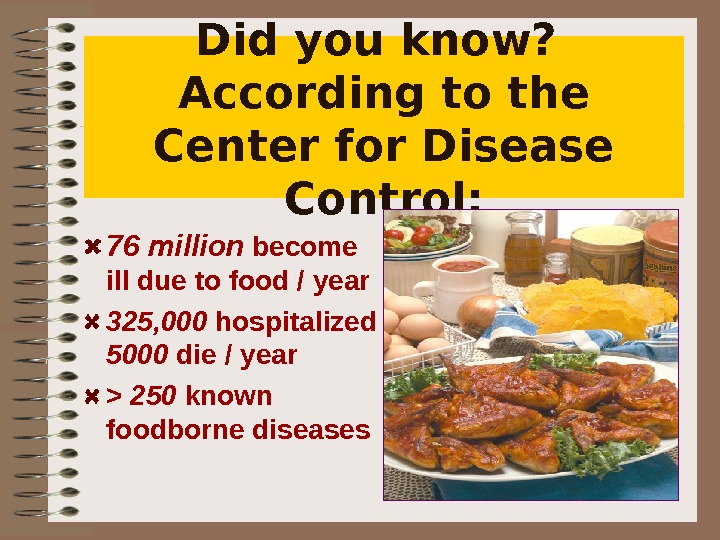
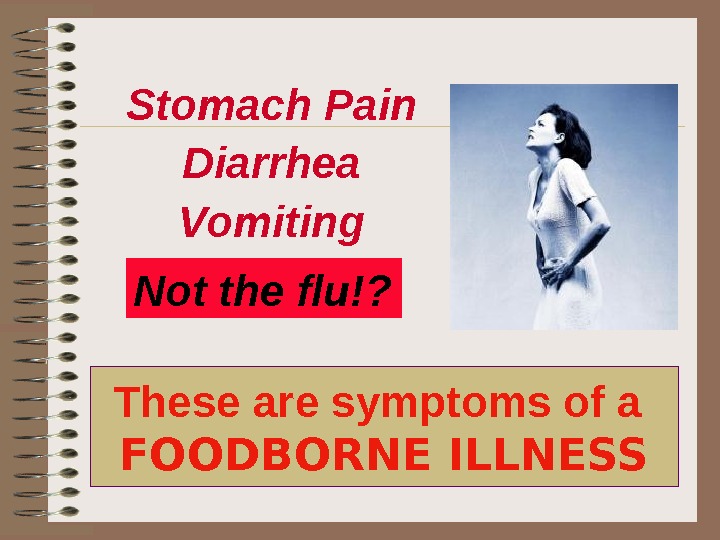
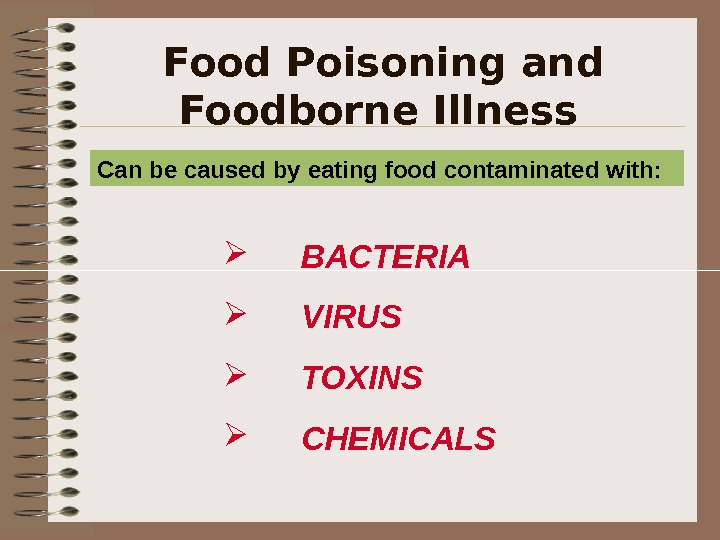
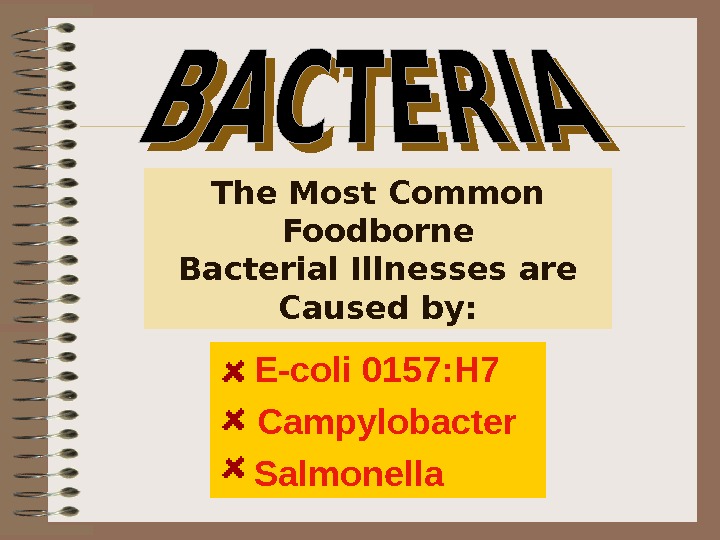
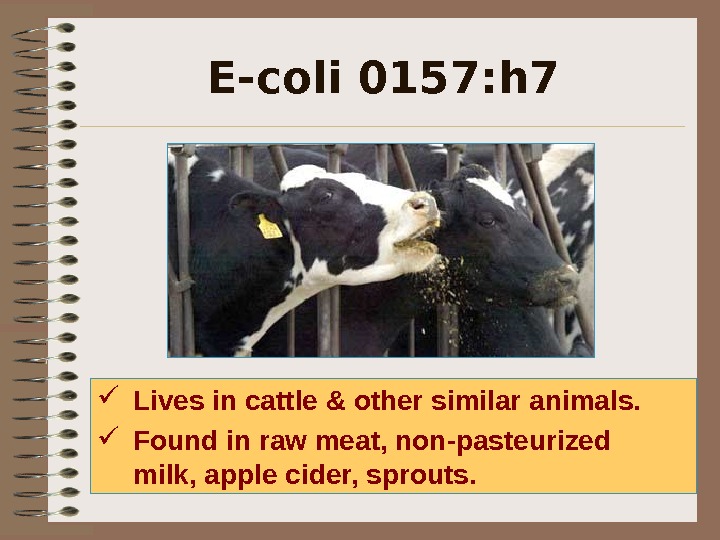
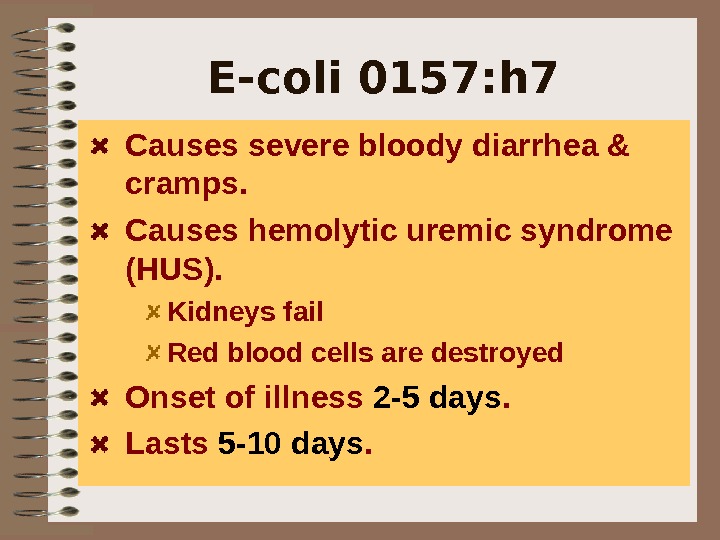
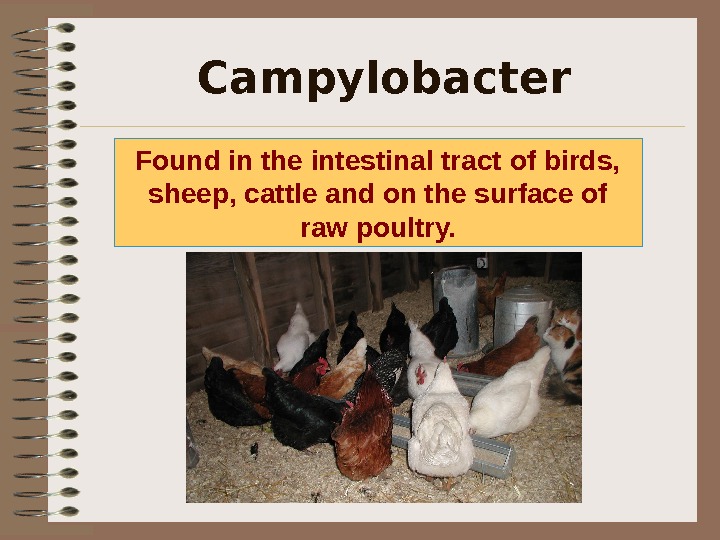
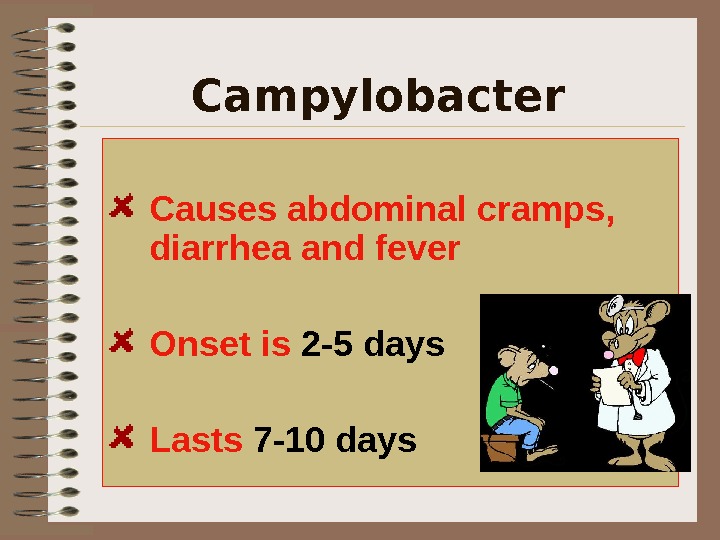
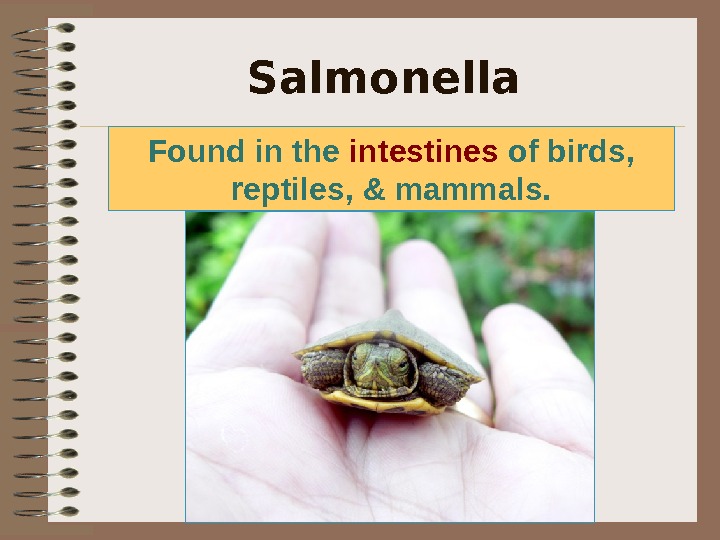
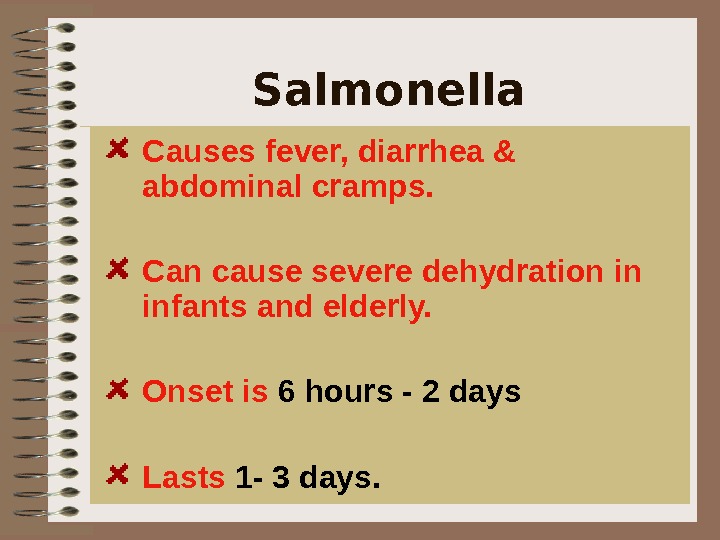

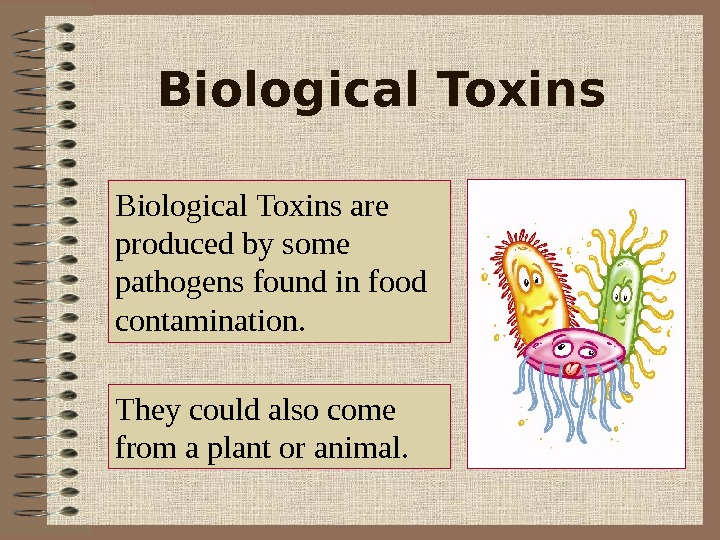
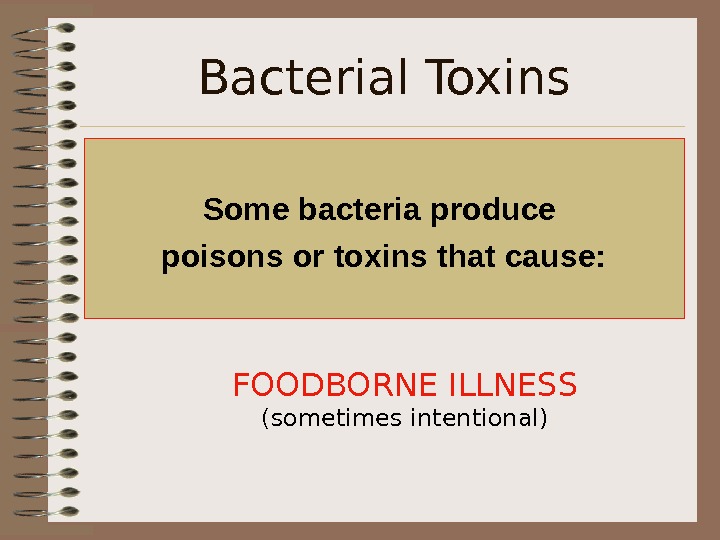
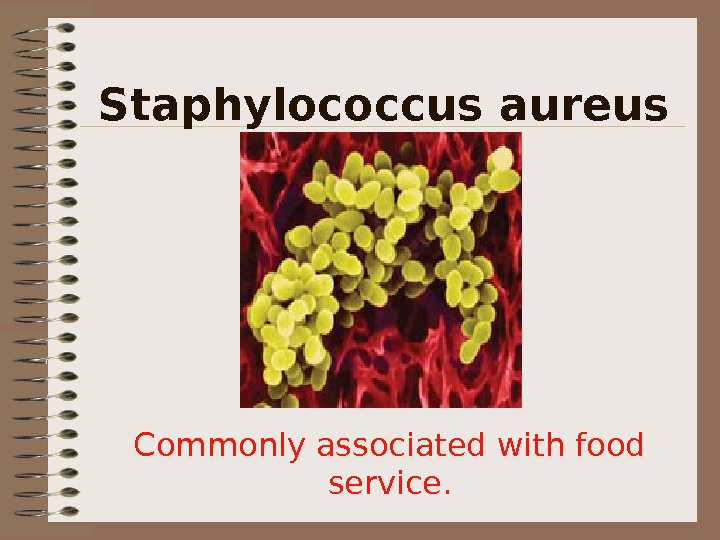
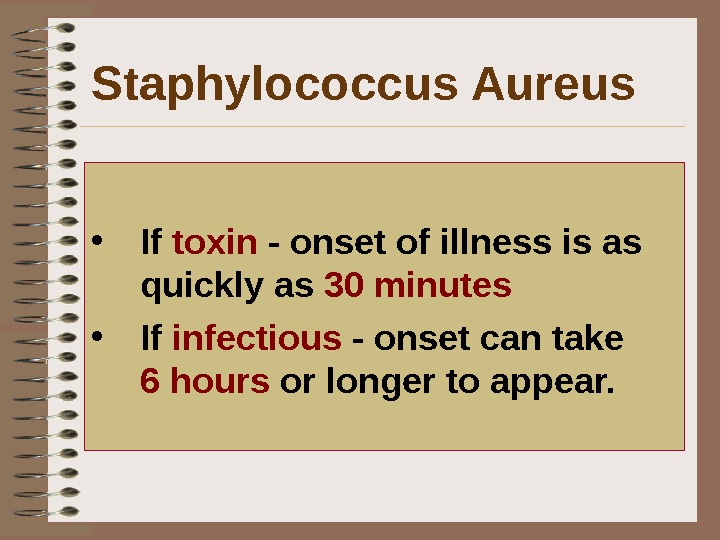
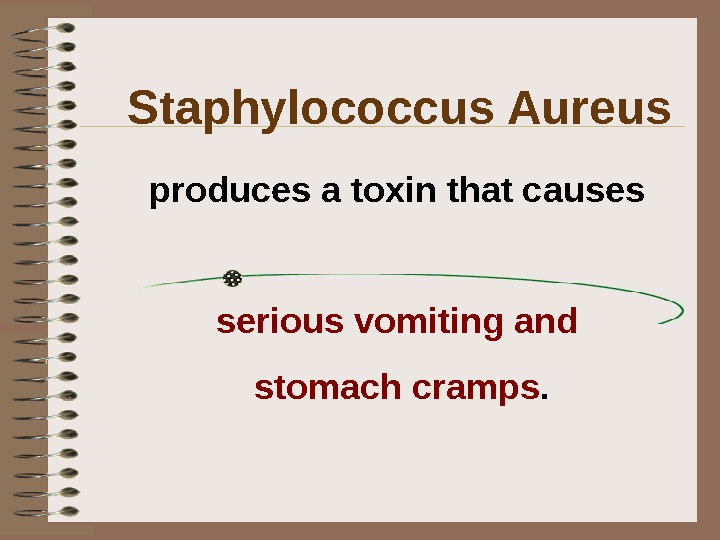
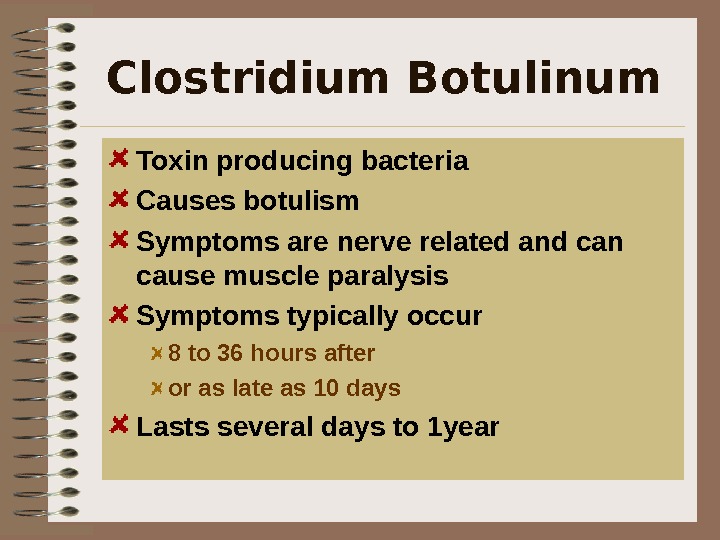
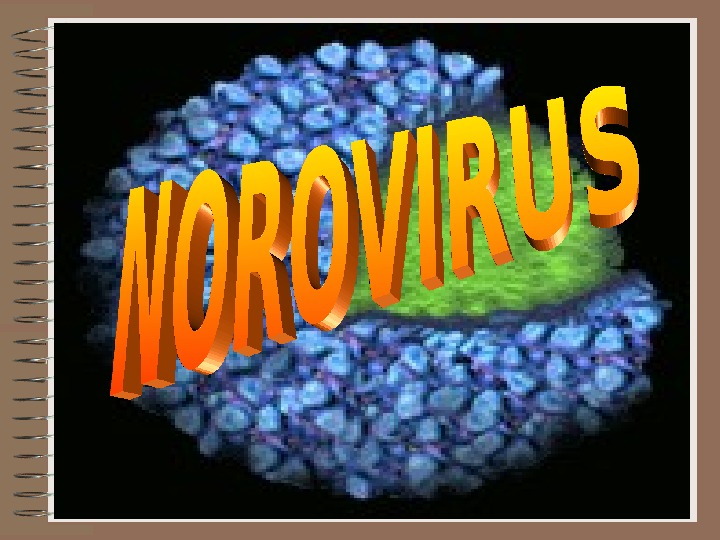
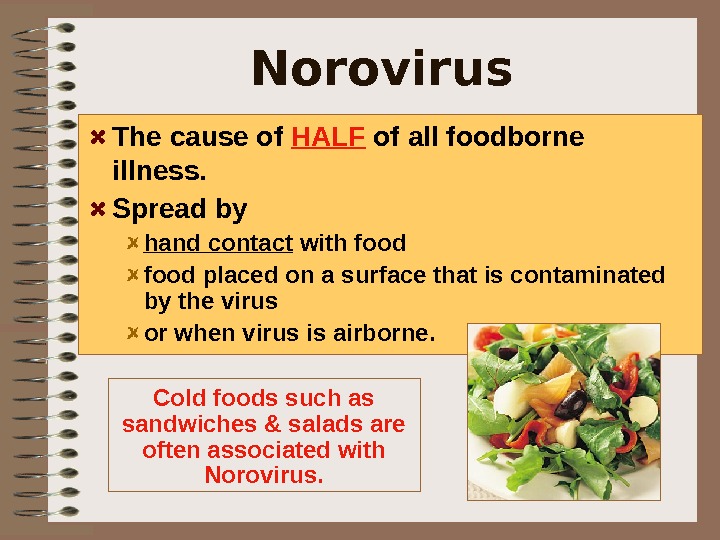
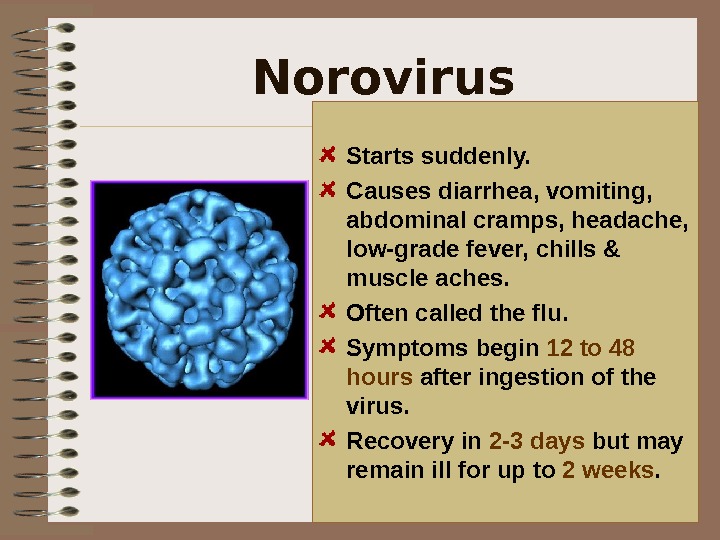
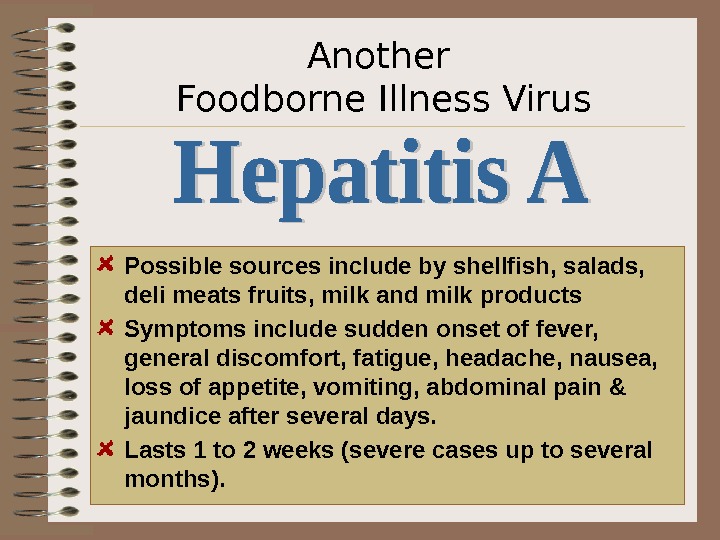

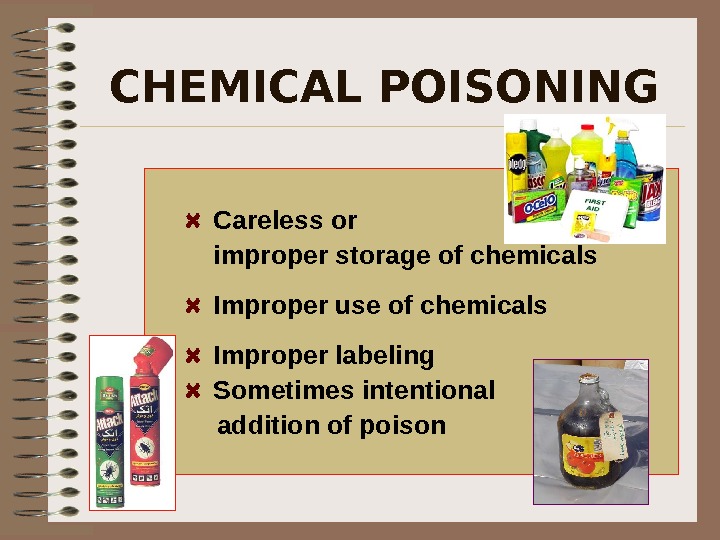
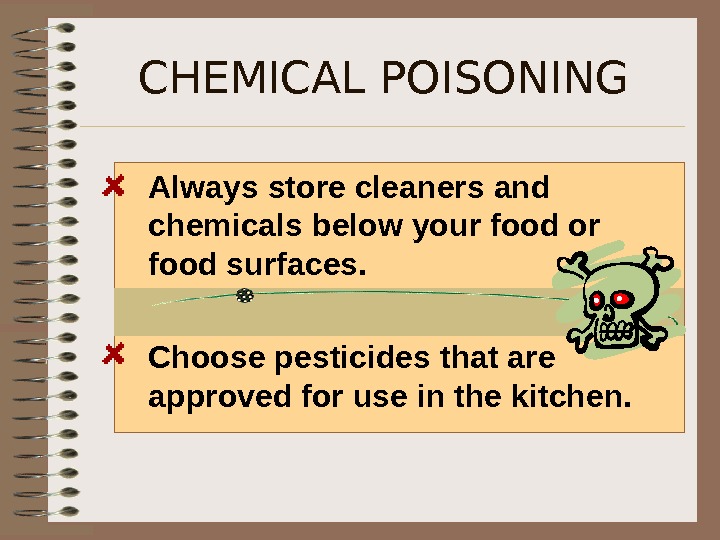
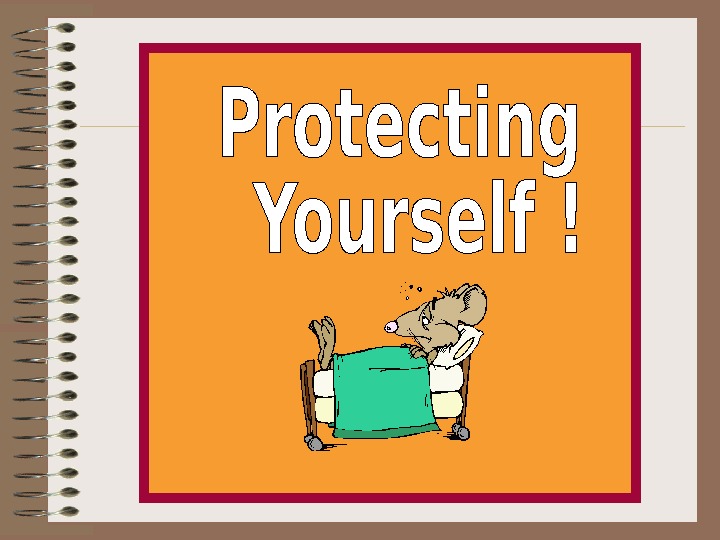

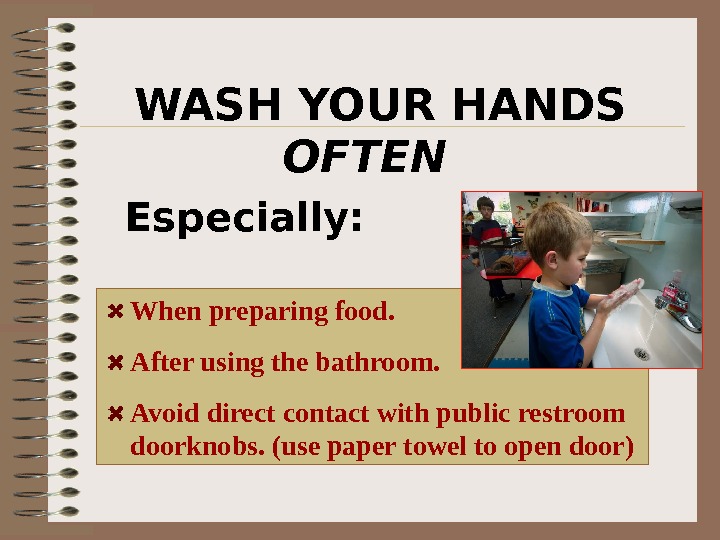
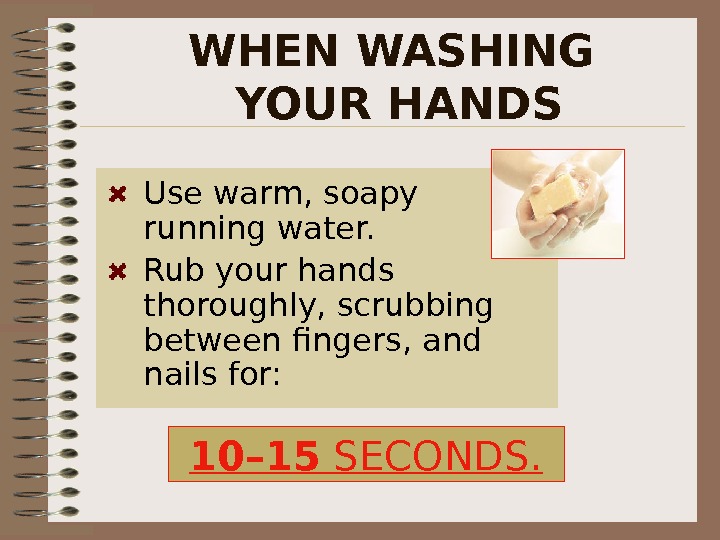
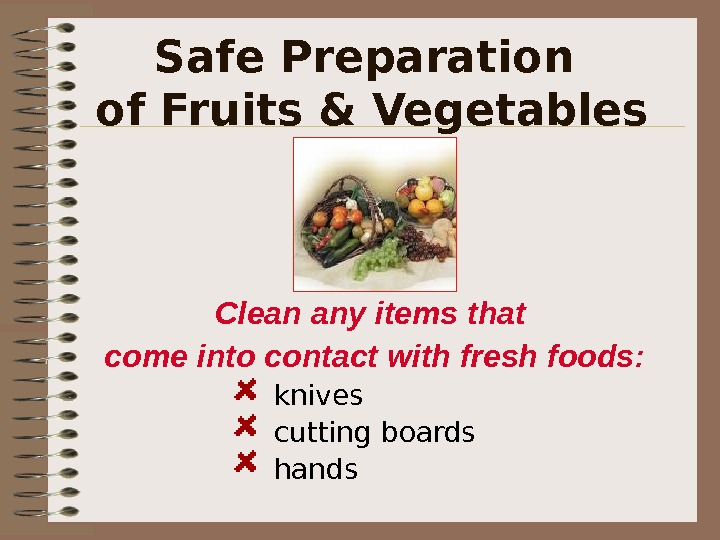
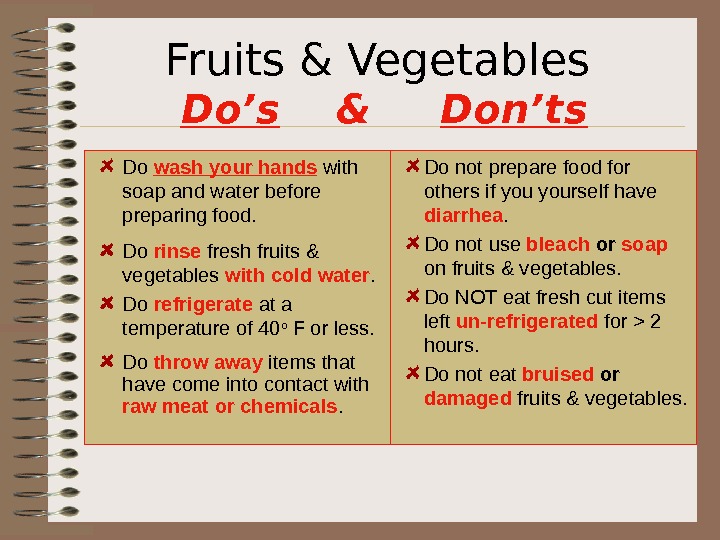
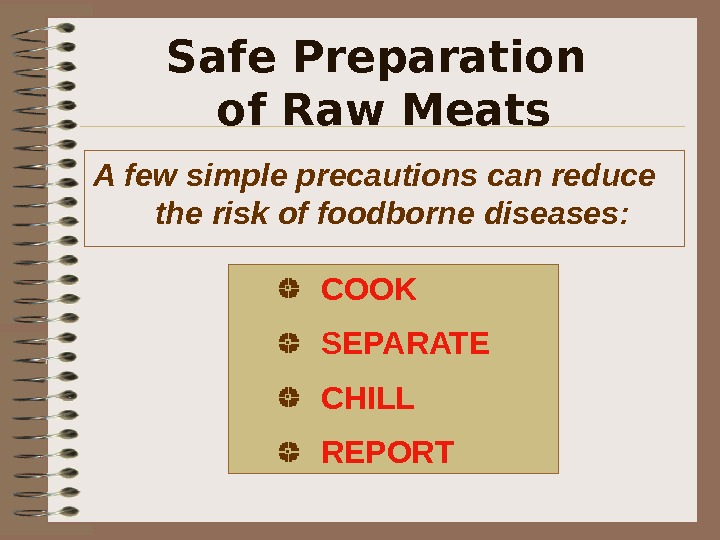
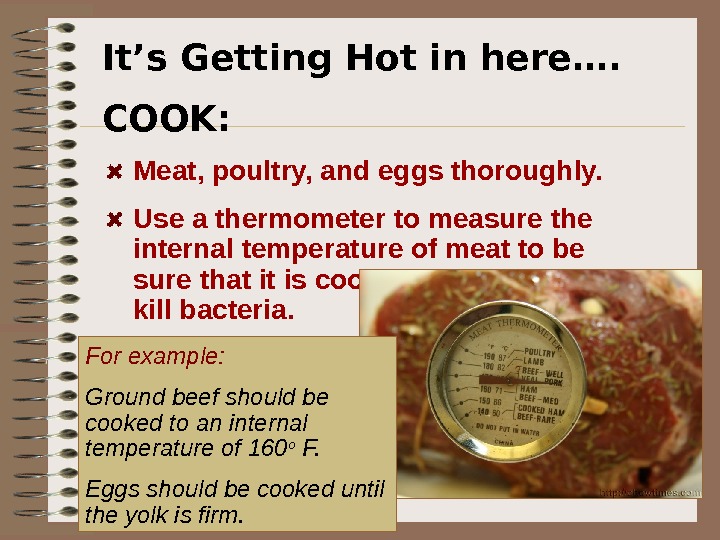
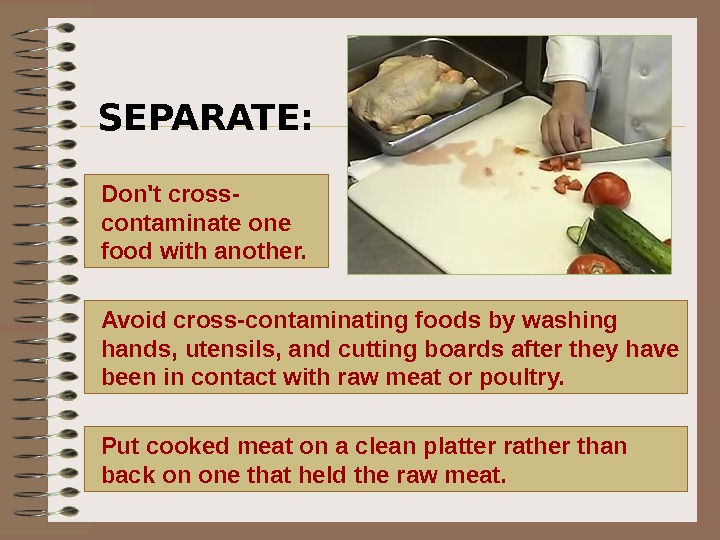
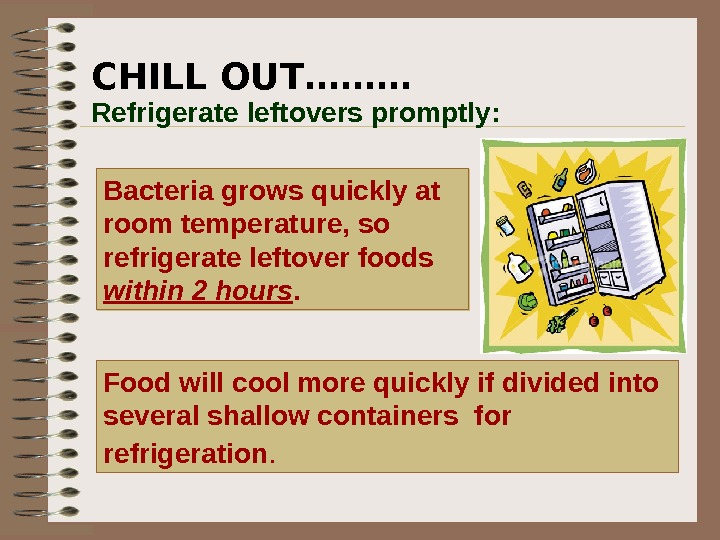
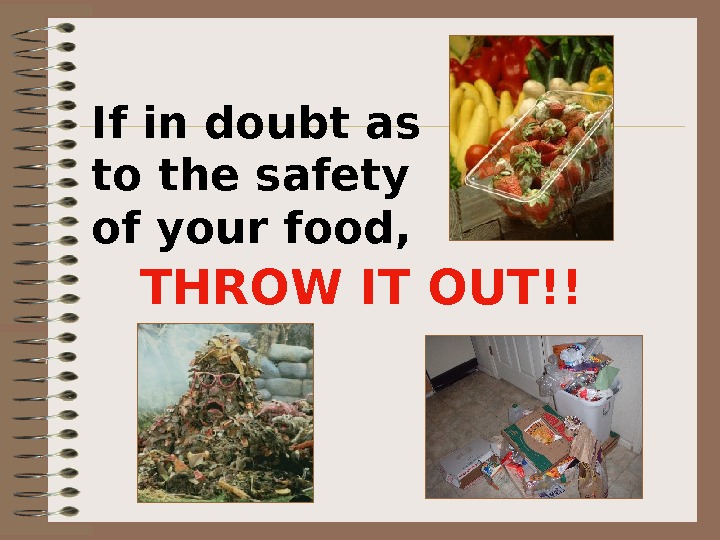
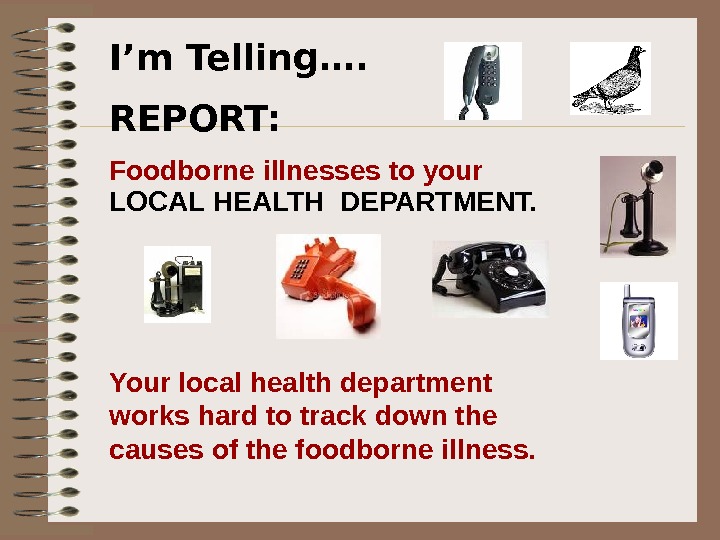
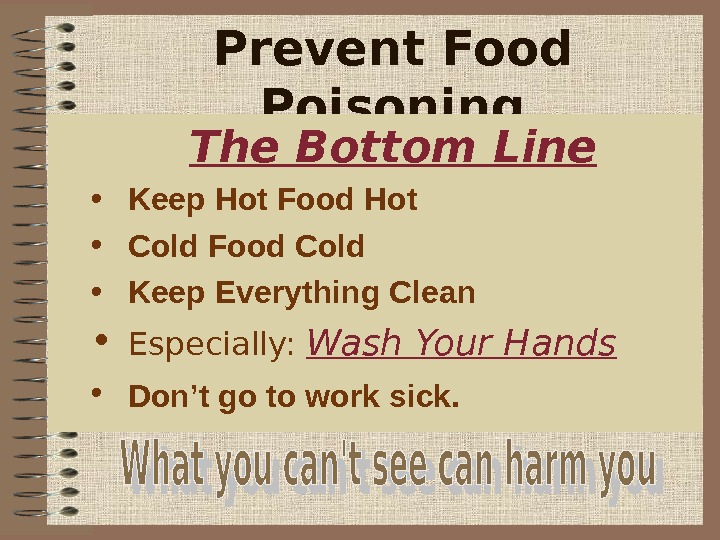
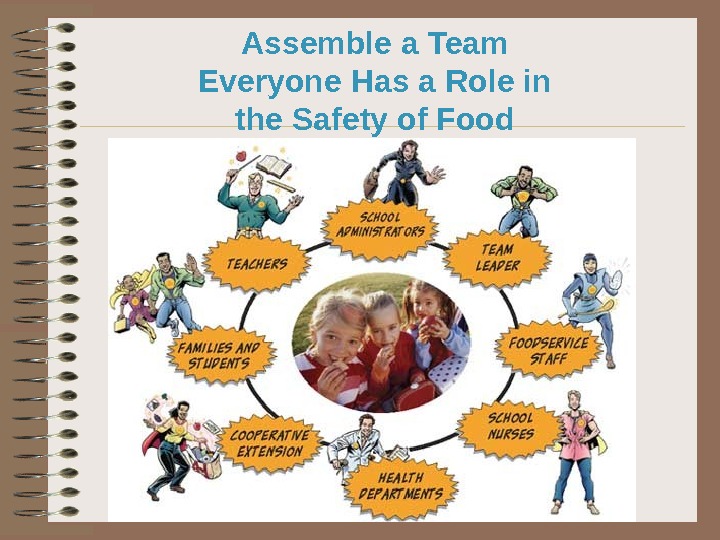

- Размер: 1.7 Mегабайта
- Количество слайдов: 40
Описание презентации IR 144 Koishibayev Amirkhan Did you know? по слайдам
 IR 144 Koishibayev Amirkhan
IR 144 Koishibayev Amirkhan
 Did you know? According to the Center for Disease Control: 76 million become ill due to food / year 325, 000 hospitalized 5000 die / year > 250 known foodborne diseases
Did you know? According to the Center for Disease Control: 76 million become ill due to food / year 325, 000 hospitalized 5000 die / year > 250 known foodborne diseases
 These are symptoms of a FOODBORNE ILLNESS Stomach Pain Diarrhea Vomiting Not the flu!?
These are symptoms of a FOODBORNE ILLNESS Stomach Pain Diarrhea Vomiting Not the flu!?
 Food Poisoning and Foodborne Illness BACTERIA VIRUS TOXINS CHEMICALS Can be caused by eating food contaminated with:
Food Poisoning and Foodborne Illness BACTERIA VIRUS TOXINS CHEMICALS Can be caused by eating food contaminated with:
 The Most Common Foodborne Bacterial Illnesses are Caused by: E-coli 0157: H 7 Campylobacter Salmonella
The Most Common Foodborne Bacterial Illnesses are Caused by: E-coli 0157: H 7 Campylobacter Salmonella
 E-coli 0157: h 7 Lives in cattle & other similar animals. Found in raw meat, non-pasteurized milk, apple cider, sprouts.
E-coli 0157: h 7 Lives in cattle & other similar animals. Found in raw meat, non-pasteurized milk, apple cider, sprouts.
 E-coli 0157: h 7 Causes severe bloody diarrhea & cramps. Causes hemolytic uremic syndrome (HUS). Kidneys fail Red blood cells are destroyed Onset of illness 2 -5 days. Lasts 5 -10 days.
E-coli 0157: h 7 Causes severe bloody diarrhea & cramps. Causes hemolytic uremic syndrome (HUS). Kidneys fail Red blood cells are destroyed Onset of illness 2 -5 days. Lasts 5 -10 days.
 Campylobacter Found in the intestinal tract of birds, sheep, cattle and on the surface of raw poultry.
Campylobacter Found in the intestinal tract of birds, sheep, cattle and on the surface of raw poultry.
 Campylobacter Causes abdominal cramps, diarrhea and fever Onset is 2 -5 days Lasts 7 -10 days
Campylobacter Causes abdominal cramps, diarrhea and fever Onset is 2 -5 days Lasts 7 -10 days
 Salmonella Found in the intestines of birds, reptiles, & mammals.
Salmonella Found in the intestines of birds, reptiles, & mammals.
 Salmonella Causes fever, diarrhea & abdominal cramps. Can cause severe dehydration in infants and elderly. Onset is 6 hours — 2 days Lasts 1 — 3 days.
Salmonella Causes fever, diarrhea & abdominal cramps. Can cause severe dehydration in infants and elderly. Onset is 6 hours — 2 days Lasts 1 — 3 days.

 Biological Toxins are produced by some pathogens found in food contamination. They could also come from a plant or animal.
Biological Toxins are produced by some pathogens found in food contamination. They could also come from a plant or animal.
 Bacterial Toxins Some bacteria produce poisons or toxins that cause: FOODBORNE ILLNESS (sometimes intentional)
Bacterial Toxins Some bacteria produce poisons or toxins that cause: FOODBORNE ILLNESS (sometimes intentional)
 Staphylococcus aureus Commonly associated with food service.
Staphylococcus aureus Commonly associated with food service.
 • If toxin — onset of illness is as quickly as 30 minutes • If infectious — onset can take 6 hours or longer to appear. Staphylococcus Aureus
• If toxin — onset of illness is as quickly as 30 minutes • If infectious — onset can take 6 hours or longer to appear. Staphylococcus Aureus
 produces a toxin that causes serious vomiting and stomach cramps. Staphylococcus Aureus
produces a toxin that causes serious vomiting and stomach cramps. Staphylococcus Aureus
 Clostridium Botulinum Toxin producing bacteria Causes botulism Symptoms are nerve related and can cause muscle paralysis Symptoms typically occur 8 to 36 hours after or as late as 10 days Lasts several days to 1 year
Clostridium Botulinum Toxin producing bacteria Causes botulism Symptoms are nerve related and can cause muscle paralysis Symptoms typically occur 8 to 36 hours after or as late as 10 days Lasts several days to 1 year
 Influenz
Influenz
 Norovirus The cause of HALF of all foodborne illness. Spread by hand contact with food placed on a surface that is contaminated by the virus or when virus is airborne. Cold foods such as sandwiches & salads are often associated with Norovirus.
Norovirus The cause of HALF of all foodborne illness. Spread by hand contact with food placed on a surface that is contaminated by the virus or when virus is airborne. Cold foods such as sandwiches & salads are often associated with Norovirus.
 Norovirus Starts suddenly. Causes diarrhea, vomiting, abdominal cramps, headache, low-grade fever, chills & muscle aches. Often called the flu. Symptoms begin 12 to 48 hours after ingestion of the virus. Recovery in 2 -3 days but may remain ill for up to 2 weeks.
Norovirus Starts suddenly. Causes diarrhea, vomiting, abdominal cramps, headache, low-grade fever, chills & muscle aches. Often called the flu. Symptoms begin 12 to 48 hours after ingestion of the virus. Recovery in 2 -3 days but may remain ill for up to 2 weeks.
 Another Foodborne Illness Virus Possible sources include by shellfish, salads, deli meats fruits, milk and milk products Symptoms include sudden onset of fever, general discomfort, fatigue, headache, nausea, loss of appetite, vomiting, abdominal pain & jaundice after several days. Lasts 1 to 2 weeks (severe cases up to several months).
Another Foodborne Illness Virus Possible sources include by shellfish, salads, deli meats fruits, milk and milk products Symptoms include sudden onset of fever, general discomfort, fatigue, headache, nausea, loss of appetite, vomiting, abdominal pain & jaundice after several days. Lasts 1 to 2 weeks (severe cases up to several months).

 CHEMICAL POISONING Careless or improper storage of chemicals Improper use of chemicals Improper labeling Sometimes intentional addition of poison
CHEMICAL POISONING Careless or improper storage of chemicals Improper use of chemicals Improper labeling Sometimes intentional addition of poison
 CHEMICAL POISONING Always store cleaners and chemicals below your food or food surfaces. Choose pesticides that are approved for use in the kitchen.
CHEMICAL POISONING Always store cleaners and chemicals below your food or food surfaces. Choose pesticides that are approved for use in the kitchen.


 WASH YOUR HANDS OFTEN Especially: When preparing food. After using the bathroom. Avoid direct contact with public restroom doorknobs. (use paper towel to open door)
WASH YOUR HANDS OFTEN Especially: When preparing food. After using the bathroom. Avoid direct contact with public restroom doorknobs. (use paper towel to open door)
 WHEN WASHING YOUR HANDS Use warm, soapy running water. Rub your hands thoroughly, scrubbing between fingers, and nails for: 10– 15 SECONDS.
WHEN WASHING YOUR HANDS Use warm, soapy running water. Rub your hands thoroughly, scrubbing between fingers, and nails for: 10– 15 SECONDS.
 Safe Preparation of Fruits & Vegetables Clean any items that come into contact with fresh foods: knives cutting boards hands
Safe Preparation of Fruits & Vegetables Clean any items that come into contact with fresh foods: knives cutting boards hands
 Do wash your hands with soap and water before preparing food. Do rinse fresh fruits & vegetables with cold water. Do refrigerate at a temperature of 40 o F or less. Do throw away items that have come into contact with raw meat or chemicals. Do not prepare food for others if yourself have diarrhea. Do not use bleach or soap on fruits & vegetables. Do NOT eat fresh cut items left un-refrigerated for > 2 hours. Do not eat bruised or damaged fruits & vegetables. Fruits & Vegetables Do’s & Don’ts
Do wash your hands with soap and water before preparing food. Do rinse fresh fruits & vegetables with cold water. Do refrigerate at a temperature of 40 o F or less. Do throw away items that have come into contact with raw meat or chemicals. Do not prepare food for others if yourself have diarrhea. Do not use bleach or soap on fruits & vegetables. Do NOT eat fresh cut items left un-refrigerated for > 2 hours. Do not eat bruised or damaged fruits & vegetables. Fruits & Vegetables Do’s & Don’ts
 Safe Preparation of Raw Meats A few simple precautions can reduce the risk of foodborne diseases: COOK SEPARATE CHILL REPORT
Safe Preparation of Raw Meats A few simple precautions can reduce the risk of foodborne diseases: COOK SEPARATE CHILL REPORT
 It’s Getting Hot in here…. COOK: Meat, poultry, and eggs thoroughly. Use a thermometer to measure the internal temperature of meat to be sure that it is cooked sufficiently to kill bacteria. For example: Ground beef should be cooked to an internal temperature of 160 o F. Eggs should be cooked until the yolk is firm.
It’s Getting Hot in here…. COOK: Meat, poultry, and eggs thoroughly. Use a thermometer to measure the internal temperature of meat to be sure that it is cooked sufficiently to kill bacteria. For example: Ground beef should be cooked to an internal temperature of 160 o F. Eggs should be cooked until the yolk is firm.
 SEPARATE: Put cooked meat on a clean platter rather than back on one that held the raw meat. Don’t cross- contaminate one food with another. Avoid cross-contaminating foods by washing hands, utensils, and cutting boards after they have been in contact with raw meat or poultry.
SEPARATE: Put cooked meat on a clean platter rather than back on one that held the raw meat. Don’t cross- contaminate one food with another. Avoid cross-contaminating foods by washing hands, utensils, and cutting boards after they have been in contact with raw meat or poultry.
 CHILL OUT……… Bacteria grows quickly at room temperature, so refrigerate leftover foods within 2 hours. Food will cool more quickly if divided into several shallow containers for refrigeration. Refrigerate leftovers promptly:
CHILL OUT……… Bacteria grows quickly at room temperature, so refrigerate leftover foods within 2 hours. Food will cool more quickly if divided into several shallow containers for refrigeration. Refrigerate leftovers promptly:
 If in doubt as to the safety of your food, THROW IT OUT!!
If in doubt as to the safety of your food, THROW IT OUT!!
 I’m Telling…. REPORT: Foodborne illnesses to your LOCAL HEALTH DEPARTMENT. Your local health department works hard to track down the causes of the foodborne illness.
I’m Telling…. REPORT: Foodborne illnesses to your LOCAL HEALTH DEPARTMENT. Your local health department works hard to track down the causes of the foodborne illness.
 Prevent Food Poisoning The Bottom Line • Keep Hot Food Hot • Cold Food Cold • Keep Everything Clean • Especially: Wash Your Hands • Don’t go to work sick.
Prevent Food Poisoning The Bottom Line • Keep Hot Food Hot • Cold Food Cold • Keep Everything Clean • Especially: Wash Your Hands • Don’t go to work sick.
 Assemble a Team Everyone Has a Role in the Safety of Food
Assemble a Team Everyone Has a Role in the Safety of Food
 M ADE BY: Koishibayev Am irkhan
M ADE BY: Koishibayev Am irkhan

